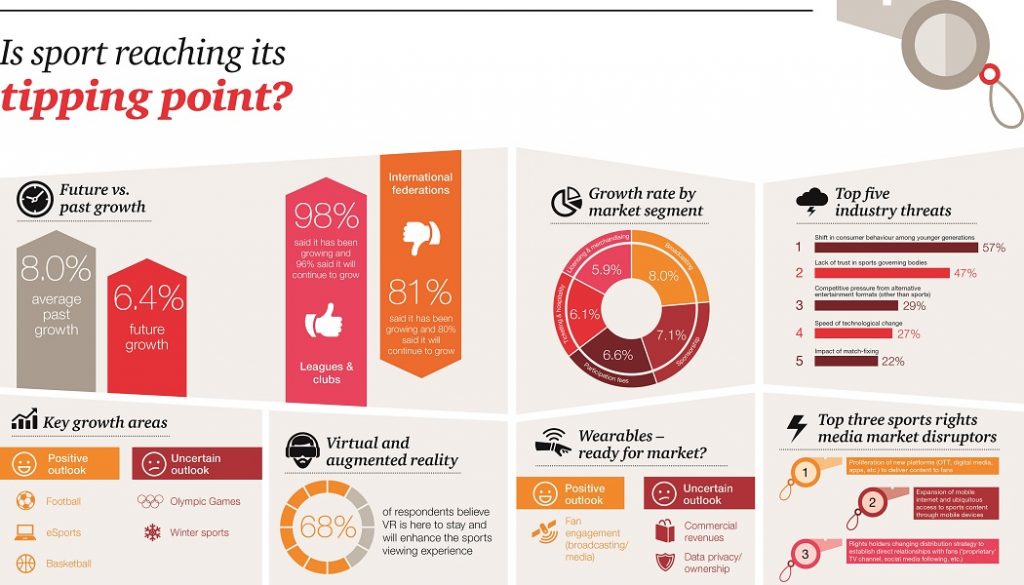PwC’s Sports Survey 2017: Sports – the most disrupted of all industries
September 27, 2017
Sports industry leaders expect the sector’s growth rates to slow down from 8 to 6.4% per year. While football appears to be too big to fail and eSports is seen as a key growth area, respondents view the Olympics as having a less certain future.
More than two-thirds of respondents believe virtual reality is here to stay and will enhance the sports viewing experience. These are some of the key results of the 2017 edition of PwC’s Sports Survey.
Zurich, 27 September 2017 – The 2017 edition of PwC’s Sports Survey asked a wide variety of sports industry stakeholders about the challenges and disruptive forces that are prevalent today. The report focussed on a number of topical industry matters, such as the future of the sports right market, wearable and sensor technology, and virtual and augmented reality.
Hot growth rates cooling off?
Survey respondents across the board still expect the sports industry to continue to grow. However, they foresee this growth to slow down by over 20% to an average of 6.4% per year over the next three to five years.
David Dellea, Director of PwC Switzerland’s Sports Business Advisory Team, explains “the results of the survey confirm that the sports industry is reaching a decisive inflection point, where sustained growth will be the privilege of a few premium properties. Media is being consumed differently especially among the younger generation, and sport finds itself in competition with an increasing number of alternative entertainment formats”.

eSports growing fast, Olympics facing challenges
While most of those answering the survey expect football to continue dominating the global sports market, eSports ranked as the second highest format in terms of forecasted growth potential. The Olympic Games and winter sports, on the other hand, are showing signs of slipping down the appeal rankings of global sports properties.
This is also evidenced by their apparent decline in TV ratings, especially among the younger population. More generally, 57% of respondents consider the shift in consumer behaviour among younger generations as the top threat faced by the industry.
How real is virtual reality in sports?
68% of respondents believe virtual reality (VR) is here to stay and will enhance the sports viewing experience. They see it more as a question of ‘when’ rather than ‘if’ VR will have an impact on traditional TV broadcasting. VR and augmented reality (AR) have the potential to revolutionise the fan experience when it comes to sports events, but also the way sports content will be broadcast. However, the survey also shows that further technological advances are needed if VR and AR are to reach their full potential in sports broadcasting.
Download: The full study is available here



